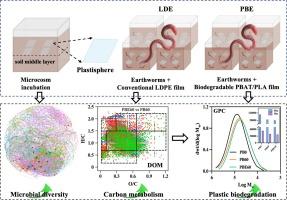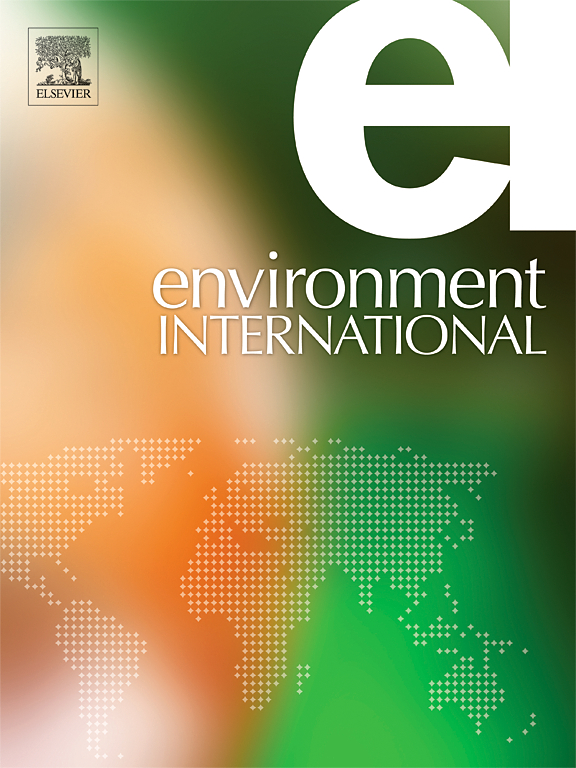When plastisphere and drilosphere meet: Earthworms facilitate microbiome and nutrient turnover to accelerate biodegradation of agricultural plastic films
IF 10.3
1区 环境科学与生态学
Q1 ENVIRONMENTAL SCIENCES
引用次数: 0
Abstract
Agricultural plastic mulching films have been an environmental concern for decades. The effects of the interactions between the anthropogenic plastisphere and other soil biospheres, particularly that of earthworms, on the fate of plastics remain poorly understood. Here, we investigated the decomposition of buried nonbiodegradable low-density polyethylene (LDPE) versus biodegradable PBTA/PLA copolymers in the presence of earthworms (Amynthas cortices) in dynamic microcosms. Earthworms significantly enhanced the biodegradation of plastic films in situ, as confirmed by mass reduction, surface modification, and changes in the molecular weights of films. Notably, the PBTA/PLA films exhibited a 1.41-fold increase in mass loss and a 5.69% reduction in the number-average molecular weight when incubated with earthworms. Earthworms influenced the microbial assembly within the plastisphere by increasing both bacterial and fungal biodiversity, as well as their network complexity. The time-decay patterns in the abundance of keystone degrader taxa, including the genera Noviherbaspirillum, Rhizobacter, and Mortierella, were mitigated by earthworms over the 60-day period. Additionally, earthworms preferentially consumed recalcitrant dissolved organic matter in LDPE and PBAT/PLA plastisphere soils, thereby increasing the bioavailability of components that serve as nutrient supplies for plastisphere microbiomes. Our findings demonstrate that earthworms enhance the decomposition of plastics in soils via cross-species interplay within the plastisphere and drilosphere, contributing not only to soil conditioning and biodiversity but also to plastic biodegradation in natural agroecosystems.


求助全文
约1分钟内获得全文
求助全文
来源期刊

Environment International
环境科学-环境科学
CiteScore
21.90
自引率
3.40%
发文量
734
审稿时长
2.8 months
期刊介绍:
Environmental Health publishes manuscripts focusing on critical aspects of environmental and occupational medicine, including studies in toxicology and epidemiology, to illuminate the human health implications of exposure to environmental hazards. The journal adopts an open-access model and practices open peer review.
It caters to scientists and practitioners across all environmental science domains, directly or indirectly impacting human health and well-being. With a commitment to enhancing the prevention of environmentally-related health risks, Environmental Health serves as a public health journal for the community and scientists engaged in matters of public health significance concerning the environment.
 求助内容:
求助内容: 应助结果提醒方式:
应助结果提醒方式:


